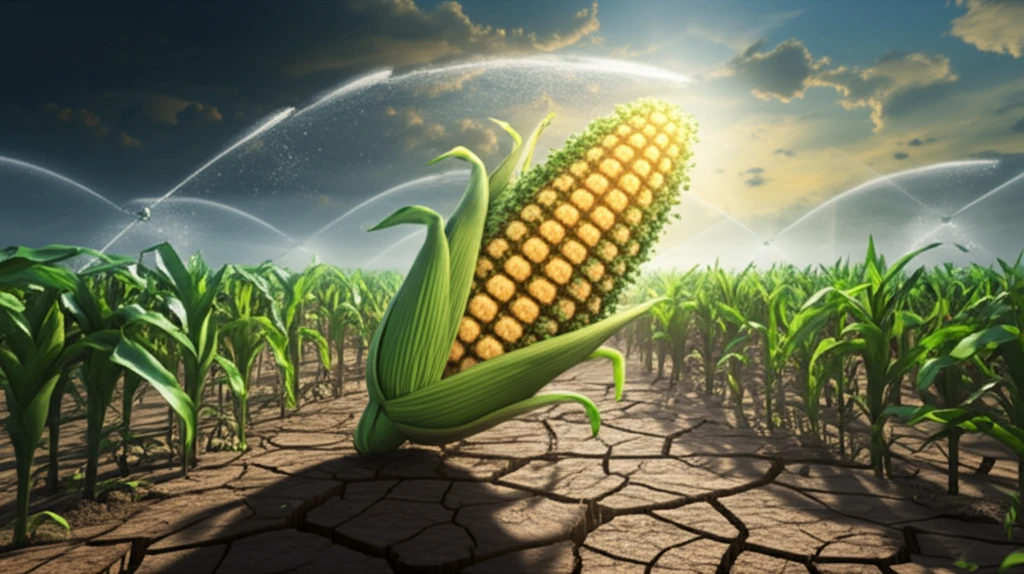
Is Deficit Irrigation the Future of Farming? How Strategic Water Management Can Save Crops and Resources
"Unlocking Sustainable Agriculture: Exploring Yield Response, Water Productivity, and Seasonal Water Production Functions for Maize Under Deficit Irrigation Management"
In an era where water resources are becoming increasingly strained, the agricultural sector faces immense pressure to optimize water usage while maintaining or even increasing crop yields. Traditional irrigation methods, often relying on flooding fields, are simply no longer sustainable in many regions. This necessitates a shift towards innovative strategies that prioritize efficiency and conservation. One such approach gaining considerable attention is deficit irrigation (DI).
Deficit irrigation involves deliberately applying less water than the crop would ideally require, particularly during specific growth stages that are less sensitive to water stress. The goal is to minimize water use while avoiding significant reductions in yield. This requires a delicate balance, a deep understanding of the crop's water requirements at each growth stage, and careful monitoring of soil moisture levels.
Maize, a staple crop worldwide, is often grown in regions prone to water scarcity. This makes it a prime candidate for DI strategies. Research has shown that, under certain conditions, maize can tolerate mild water stress without substantial yield losses, opening up opportunities for significant water savings.
Understanding the Science: How Deficit Irrigation Impacts Maize Production

A recent study published in Plant Production Science investigated the effects of deficit irrigation on maize production in southern Taiwan. The researchers aimed to quantify maize yield response to soil moisture deficits and assess the impact of DI on water productivity. They examined five irrigation treatments, ranging from full irrigation to varying levels of deficit irrigation.
- Yield Reduction: Water deficits led to a significant reduction in grain yield, ranging from 6% to 33%, depending on the severity of the deficit.
- Component Decline: This yield reduction was correlated with a decline in grain number per ear, 1000-grain weight, ear number per plant, and number of grains per row.
- Water Productivity: Water use efficiency (WUE) and irrigation water use efficiency (IWUE) varied depending on the irrigation treatment.
- Viable Practices: High water productivity without significant yield reduction (<13%) was observed for specific water depths, indicating the potential for sustainable water development.
The Future of Maize Farming: Balancing Yield and Sustainability
As water resources become increasingly scarce, deficit irrigation offers a promising strategy for maize farmers to optimize water use while maintaining productivity. By carefully understanding the science behind crop water requirements and implementing tailored irrigation strategies, farmers can contribute to a more sustainable and resilient agricultural sector. Further research and on-farm trials are essential to refine DI practices and ensure their widespread adoption.
